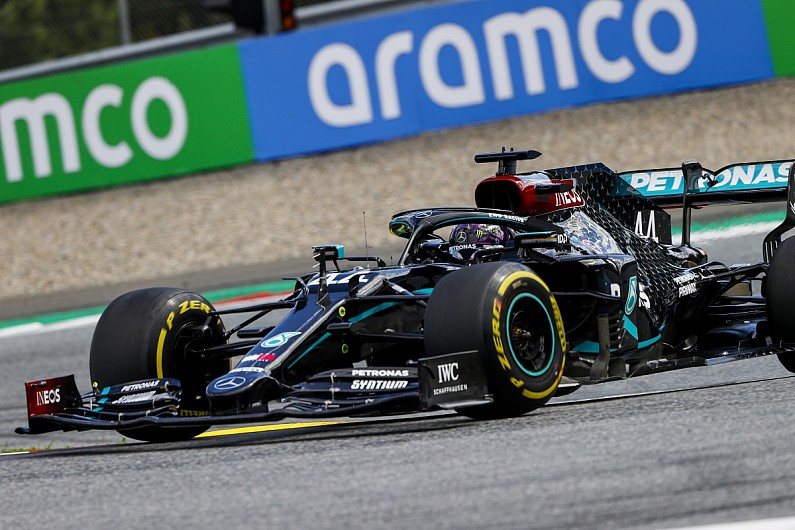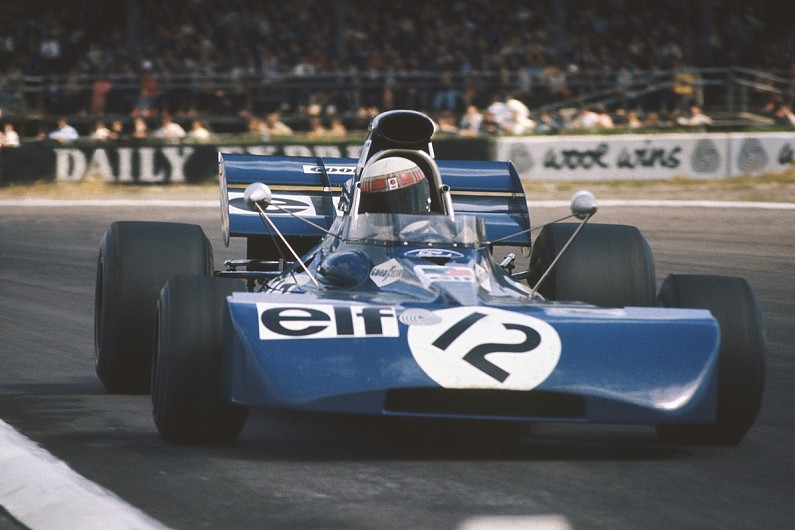Ahead of this weekend’s British Grand Prix, Autosport runs down the top 10 most statistically successful Formula 1 drivers of the past 70 years
Ranking the best British drivers in Formula 1 history is no easy task as it’s an argument that can generate hours of debate, but statistically the top 10 can be declared.
While statistics rarely reveal the full picture to decide any dispute, they can provide a window on the wider topic, albeit with a few ifs and buts required to provide context around the feats.
Lewis Hamilton has a strong claim as Britain’s greatest F1 driver, an accolade some will dispute given his dominant position at Mercedes since 2014, while ranking the top 10 in history multiplies the complicated task to provide a definitive list.
Basing this list solely on the number of F1 victories scored by Britain’s best provides a certain steer on the debate, with the usual asterisk to mark out the near impossibility of comparing different eras of F1 drivers and cars.
10. James Hunt
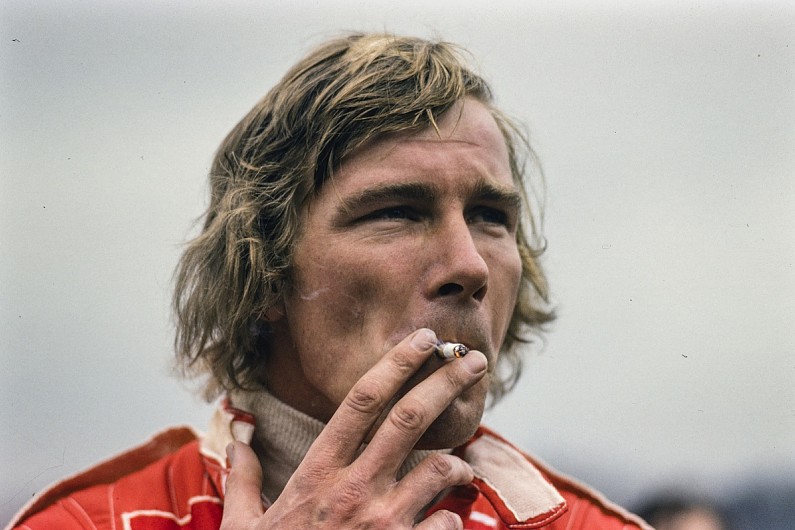
Wins: 10
Starts: 92
Poles: 14
Fastest laps: 8
Titles: 1
The leading light of a generation of British F1 drivers in the 1970s following Jackie Stewart’s retirement, Hunt’s raw pace and charisma means he will always keep a soft spot in the hearts of the British public.
Hunt impressed in a Hesketh-run March in 1973, taking a podium at Zandvoort on just his fourth grand prix start. He truly announced himself as a force when the flamboyant team started building its own cars, winning the 1974 BRDC International Trophy at Silverstone and then the Dutch Grand Prix the following year. Hunt saw off a sustained attack from Ferrari’s Niki Lauda in a wet-dry race to take his first – and Hesketh’s only – world championship race victory.
Race of my life: James Hunt on the 1975 Dutch GP
When double world champion Emerson Fittipaldi decided to leave McLaren before the 1976 season, Hunt was snapped up by the team, setting up one of the most iconic F1 title battles in history against Lauda. With Lauda suffering life-threatening injuries in a fiery crash at the Nurburgring, only to make a stunning return three races later at Monza, the title battle went down to the final round. At the Japanese GP in soaking wet conditions Lauda famously pitted as Hunt battled on to take third place and with it the crown by a single point.
Three further F1 wins followed in 1977, when Hunt arguably drove at his best, but the ensuing Lotus domination in 1978 and an unsuccessful switch to Wolf for 1979 led to Hunt announcing his immediate retirement midway through the season.
9. David Coulthard
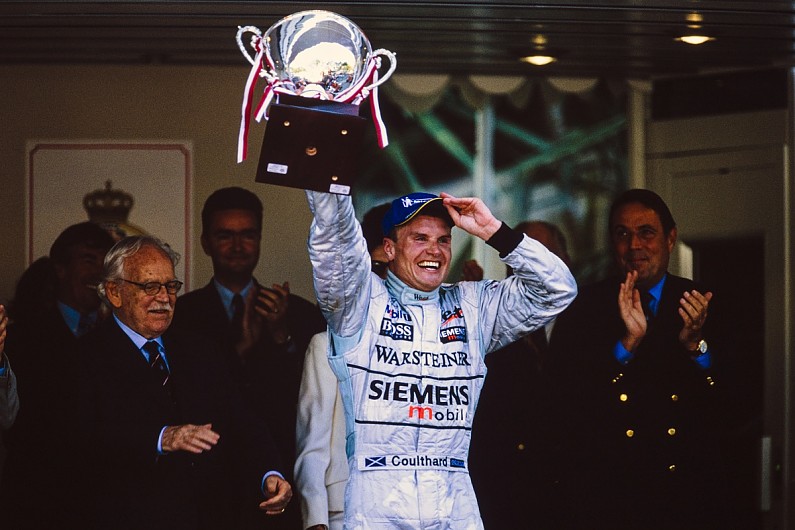
Wins: 13
Starts: 246
Poles: 12
Fastest laps: 18
Titles: 0
Coulthard made his F1 debut in the most tragic of circumstances after the death of Ayrton Senna, but at Williams he did enough that season to earn promotion to a full-time spot a year later.
With a maiden victory arriving at Estoril in 1995, big things were predicted for the Scottish driver as he moved to McLaren a year later alongside Mika Hakkinen.
PLUS: David Coulthard’s greatest races
Despite a number of strong performances, and winning at least one F1 grand prix in each season between 1997-2003, Coulthard had to play second fiddle to Hakkinen during his title triumphs in 1998 and 1999, while he and the rest of the F1 grid were unable to break the unrelenting dominance of Michael Schumacher and Ferrari at the start of the 21st century.
Race of my life: David Coulthard on the 2000 French GP
A move to the new Red Bull squad in 2005 relegated Coulthard into the midfield with just two further podiums achieved across his final four seasons in F1, but he did play his part in setting the team on course for success with Sebastian Vettel.
8. Graham Hill
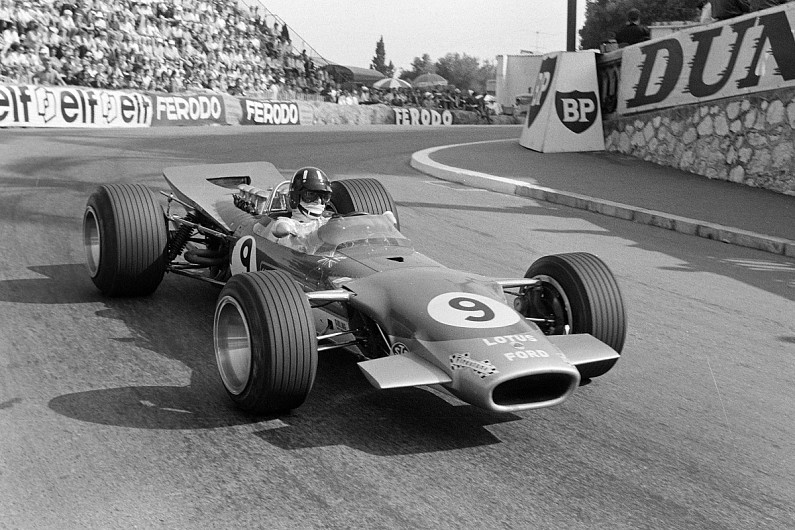
Wins: 14
Starts: 176
Poles: 13
Fastest laps: 10
Titles: 2
As the only driver ever to win motorsport’s unofficial triple crown, Hill instantly gains legendary status but his F1 record still puts him as an all-time great with two world titles.
After a troubled time with Lotus, Hill switched to BRM and scored a maiden F1 podium at Zandvoort in 1960. Two years later everything came together with the BRM P57 and Hill fought Jim Clark for the world title, taking wins in the Netherlands, Germany, Italy and South Africa to secure the crown.
PLUS: Graham Hill’s 10 greatest races
F1 wins and podiums would continue to be notched up over the following four years, but Hill would come up short in the title fight, being runner-up between 1963-65. He then joined Lotus to create a superteam with Clark in 1967.
The Cosworth DFV-engined Lotus 49 moved the goalposts, but luck was not with Hill in 1967, a string of retirements curtailing his challenge. But with a tragic backdrop of team-mates Clark and Mike Spence being killed in accidents in 1968, Hill led Lotus to the F1 world championship that year, scoring wins in Spain, Monaco and Mexico.
PLUS: F1’s great Lotus landmarks – Lotus 49
Despite a solid start to his F1 title defence in the following year, with second place in South Africa and another masterful performance at Monaco (his fifth win in the principality), he suffered two broken legs in a crash at the United States GP. While he continued to race in F1 until 1975 he never hit the same heights after the accident.
7. Jenson Button
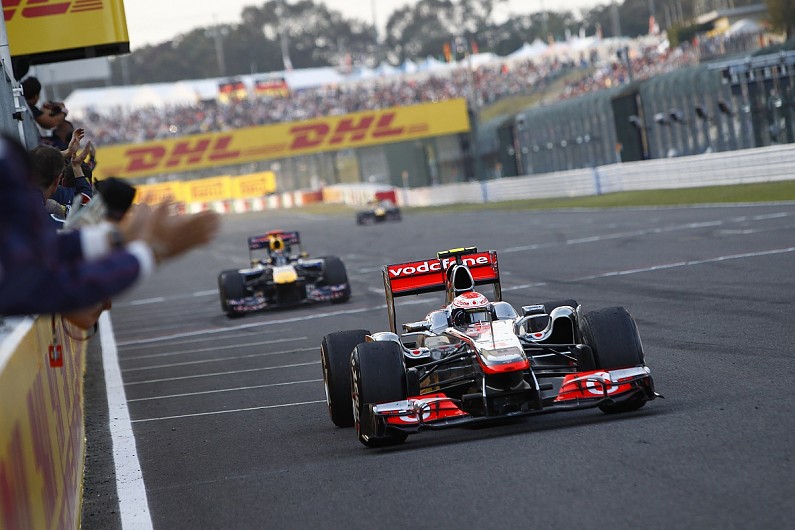
Wins: 15
Starts: 306
Poles: 8
Fastest laps: 8
Titles: 1
Button’s F1 career produced some astounding highs and lows, none more so than when he looked out of a drive when Honda withdrew at the end of 2008 only for the team to be saved by Ross Brawn, resulting in Button achieving his childhood dream by becoming world champion.
Button’s speed was rarely doubted even through a tricky season in F1 with Benetton in 2001 and two barren years with Honda in 2007-08, but his true place as a British F1 great only came to be confirmed after his title-winning campaign.
PLUS: Jenson Button’s 10 greatest F1 races ranked
A move to McLaren alongside Hamilton raised eyebrows, but Button more than held his own, finishing runner-up in the standings in 2011 as he outperformed his team-mate.
As the Woking-based team’s fortunes faded so did Button, with his final win coming at the 2012 Brazilian GP. His last four full seasons yielded just one podium – the 50th of his F1 career.
6. Stirling Moss
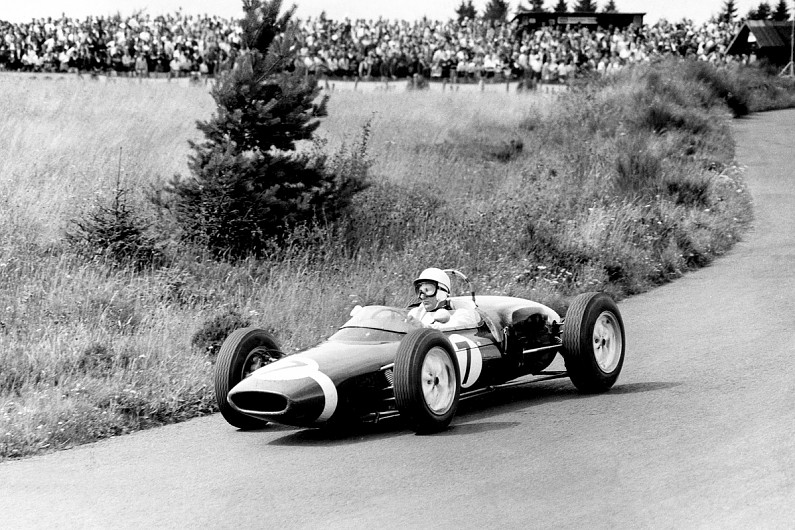
Wins: 16
Starts: 66
Poles: 16
Fastest laps: 19
Titles: 0
Considered the greatest F1 driver never to have won the world title, the recent passing of Moss compelled tributes to pour out from across the globe in reverence to a driver his peers considered the best of his generation.
Moss won in almost everything he competed in to produce a career few others can hold any comparison to and his F1 record still sees him fully deserve a spot on this list. The first home winner of the British GP, at Aintree in 1955, Moss won F1 races for Mercedes, Maserati, Vanwall, Cooper and Lotus, and remained a title fighter until his top-level career was cut short by an accident at Goodwood in 1962. His 1961 season in privateer Rob Walker’s Lotus 18, against the more powerful Ferraris, remains one of F1’s greatest campaigns.
PLUS: Stirling Moss’ 10 greatest drives
His sportsmanship was another mark of his greatness, as Moss famously defended F1 title rival Mike Hawthorn from getting a penalty at the 1958 Portuguese GP, which would effectively cost him the world championship.
5. Damon Hill
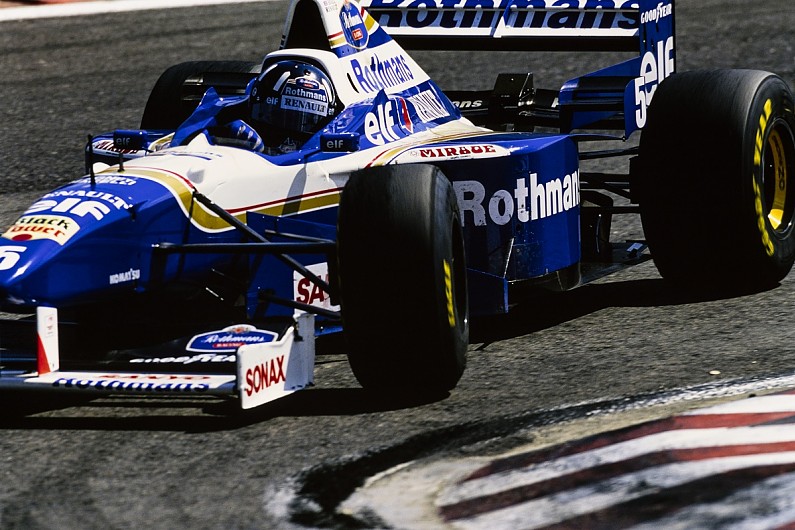
Wins: 22
Starts: 115
Poles: 20
Fastest laps: 19
Titles: 1
A relative late bloomer with a false start in F1 when Brabham folded in 1992, Hill – acting as Williams test driver that year – was called up to the team when Nigel Mansell left for IndyCar. Despite having former F1 world champion Alain Prost as his team-mate, Hill impressed throughout the 1993 season and truly broke into the big time with a hat-trick of wins in Hungary, Belgium and Italy.
Race of my life: Damon Hill on the 1994 Japanese Grand Prix
Swapping one legendary team-mate for another for 1994, as Prost left to make room for Senna, disaster struck Williams as the Brazilian driver was killed at the San Marino GP, leaving the F1 world devastated and Hill as de facto team leader.
A return to winning ways at the Spanish GP kickstarted an F1 title fight against Michael Schumacher which would end in dramatic circumstances when the pair clashed at the Adelaide finale, leaving the German to take the championship by one point.
After finishing runner-up to Schumacher again a year later, Hill and Williams produced a storming 1996 F1 campaign to take a world title double, with Hill following in the footsteps of his late father Graham as an F1 world champion.
Despite his triumph Hill was ditched by Williams, leaving him to head to the Arrows-Yamaha squad in 1997, before a final F1 victory in the wet 1998 Belgian GP competing for Jordan.
4. Jim Clark
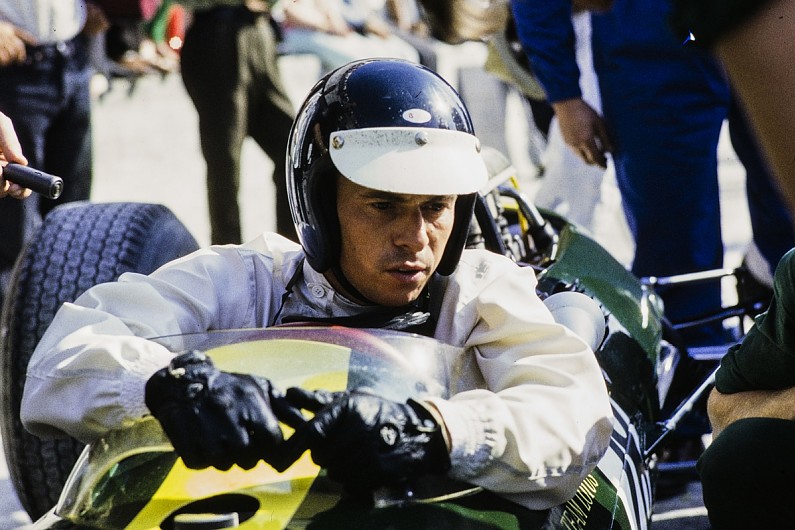
Wins: 25
Starts: 72
Poles: 33
Fastest laps: 28
Titles: 2
After making his debut with the Lotus squad at the 1960 Dutch GP, Clark formed a special partnership with team boss Colin Chapman that yielded two F1 world drivers’ titles and 25 grand prix wins.
The 1963 and 1965 seasons remain two of the most dominant F1 campaigns, while on his way to his first world crown Clark led a stunning 71% of laps across the season.
PLUS: F1’s great Lotus landmarks – Lotus 25
After coming up short against Denny Hulme in 1967 thanks to poor reliability, despite still notching up four wins, Clark made the perfect start to the 1968 F1 campaign with victory at the opener in South Africa and was a clear title favourite in the Lotus 49.
[embedded content]
But it was to mark his final F1 start as tragedy struck when Clark was killed in a Formula 2 accident competing at Hockenheim. The benchmark driver of his era, Clark’s death left a vacuum at the top of the sport, which was filled by the next person on our list…
3. Jackie Stewart
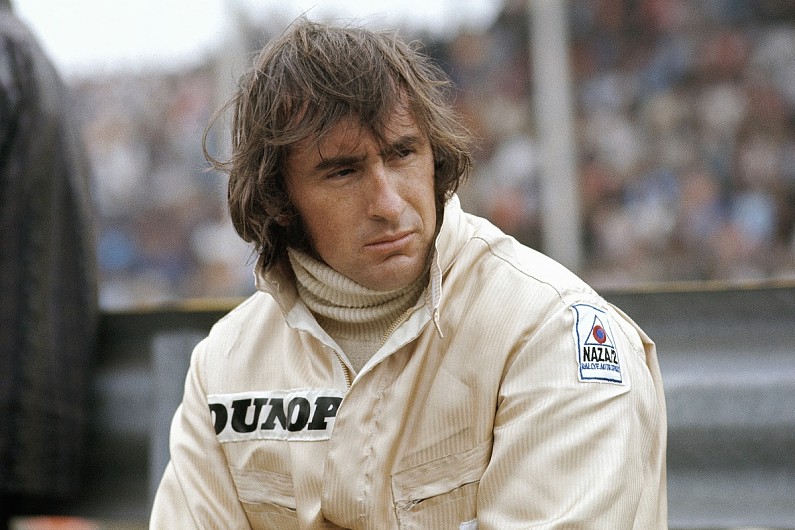
Wins: 27
Starts: 99
Poles: 17
Fastest laps: 15
Titles: 3
An F1 icon of the late 1960s and early 1970s, as a three-time world champion Stewart’s record has kept him at the top table of the greatest drivers in history for almost half a century.
An F3 star, Stewart joined BRM for his rookie F1 campaign inn 1965, winning the non-championship BRDC International Trophy at Silverstone before beating team-mate Hill to win the Italian GP.
PLUS: Jackie Stewart’s greatest drives
Stewart, a leader in improving safety in F1 during and after his racing career, claimed his maiden F1 crown in dominant fashion in 1969, driving his Ken Tyrrell-run Matra to six victories in the opening eight races. The Scot led at least one lap in every race of the season, a feat never produced before.
Stewart was the only driver to win a world championship GP in the March 701 but really hit his stride when Tyrrell became a constructor, with Derek Gardner as designer. In an era when many teams and drivers had access to Cosworth DFVs and Hewland gearboxes, Stewart was the driver to beat. He comfortably won the 1971 title and brilliantly stole the 1973 crown despite the Lotus 72s of Emerson Fittipaldi and Ronnie Peterson being faster than his Tyrrell.
Race of my life: Jackie Stewart on the 1973 Italian GP
2. Nigel Mansell
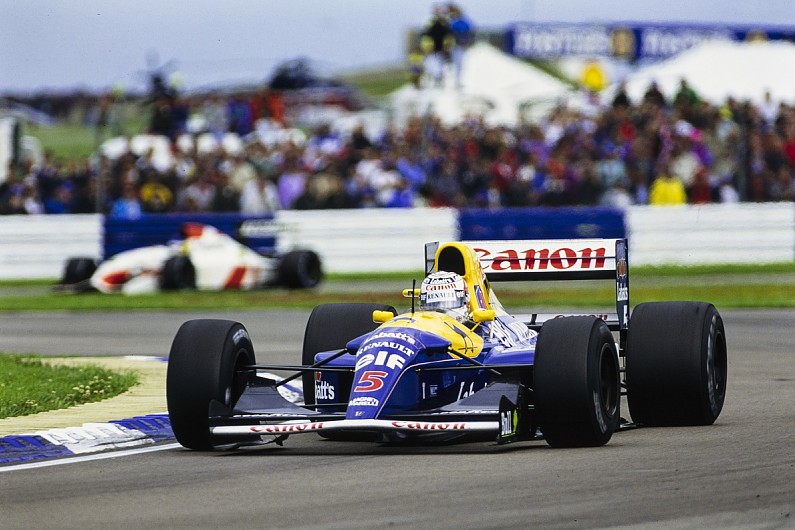
Wins: 31
Starts: 187
Poles: 32
Fastest laps: 30
Titles: 1
Mansell’s effervescence and charging style are likely to keep him high on most people’s list for top British F1 drivers and statistically he remained on top for grand prix wins until Hamilton’s era of domination started.
He showed flashes of promise – and plenty of commitment – in his early F1 days with Lotus, but Mansell’s career really gathered momentum when he joined Williams for 1985. He took his first F1 victory at Brands Hatch before becoming a leading title contender the following year. He took more wins than anyone else, but there was heartbreak at the Adelaide finale when his left-rear tyre exploded, cruelly denying him when the title was in his grasp.
Race of my life: Nigel Mansell on the 1986 British GP
Mansell was the dominant force the following year, but bad luck meant team-mate Nelson Piquet stayed in title contention and the Brazilian took the crown when Mansell crashed during qualifying for the Japanese GP, putting him out of the final two rounds of the season.
After an eventful two-year stint at Ferrari, where his popularity continued to rise having become known as ‘Il Leone’ by the Tifosi, Mansell returned to Williams for 1991 for another title tilt. It was clear Williams-Renault was becoming a real force, but retirements at key races left him to come up short against McLaren-Honda and Senna.
Everything came together for Mansell in 1992 with one of the most dominant seasons in F1 history, as he won the opening five rounds before going on to wrap up the title in Hungary with five rounds to spare.
Despite a fallout with Williams meaning he wouldn’t defend his F1 crown in 1993, instead going stateside to win the CART title, Mansell made a return to F1 with the team towards the end of 1994 after Senna’s tragic death. He won the season-closing Australian GP following the Schumacher-Hill clash.
But after Williams opted for David Coulthard over Mansell for 1995, a fruitless McLaren partnership effectively wrapped up his F1 career.
1. Lewis Hamilton
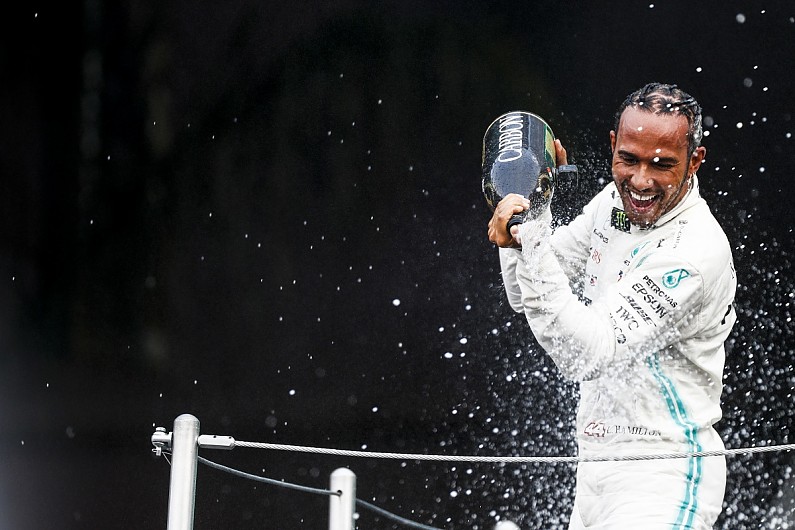
Wins: 86
Starts: 253
Poles: 90
Fastest laps: 48
Titles: 6
Statistically the greatest F1 driver from the British Isles, Hamilton’s ongoing domination with Mercedes is stamping his name all over the championship’s history book.
While Hamilton already holds the record for most pole positions in F1 history, there’s a very real prospect of him taking the same honour for most wins and even world titles – currently held by Michael Schumacher on 91 wins and seven F1 world championships.
PLUS: Why Hamilton’s legacy already outweighs Schumacher’s
Having demonstrated his supreme talents by fighting for the F1 world championship in his maiden campaign in 2007 at McLaren alongside Fernando Alonso, Hamilton’s first crown arrived in the most dramatic of title fights in 2008.
By winning at least one race each season he’s been in F1, the Stevenage-born driver’s authority in F1 truly began when he moved from McLaren to Mercedes in preparation for the V6 Hybrid revolution.
Top 10: Lewis Hamilton’s greatest F1 wins
Since 2014 Hamilton has claimed all-but one F1 drivers’ world title – the only blemish in 2016 when a combination of errors and unreliability let him down against Mercedes team-mate Nico Rosberg – but since then the British driver has continued to see off challenges from Ferrari, Red Bull and Rosberg’s replacement Valtteri Bottas.
Hamilton also has ample time to improve on his statistics as he is set to sign a new deal keeping him at Mercedes beyond 2020, meaning he would have the opportunity to become (statistically) the greatest F1 driver of all time.
